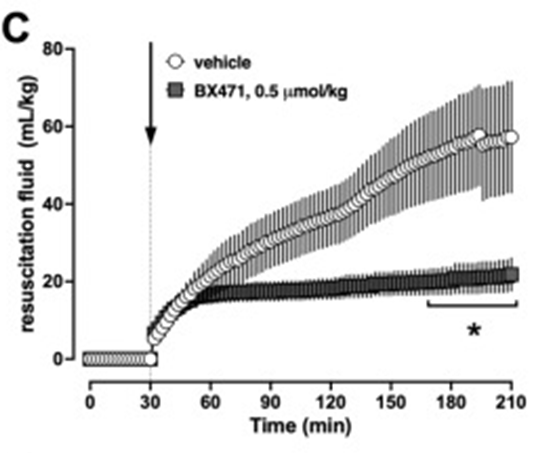Advantages
- Significant reduction in fluid requirements without noticeable adverse events
- Clinically tested compound for multiple sclerosis, demonstrating favorable safety and tolerability profile
- Mitigation of inflammation and tissue edema
- Broad market potential in major surgeries, sepsis, burn care, and military medicine, where fluid management is critical
Summary
Hemorrhagic shock remains a leading cause of preventable death in trauma and surgical settings. Traditional fluid resuscitation strategies often require large volumes of crystalloids, which can lead to complications such as tissue edema, organ dysfunction, and fluid overload. Chemokine receptors have previously been implicated in inflammatory responses during shock.
Our researchers identified CCR1 as a novel therapeutic target to reduce fluid requirements during resuscitation from hemorrhagic shock. The invention centers on the use of BX471, a potent, selective, and clinically tested non‐peptide CCR1 antagonist to be used at the onset of fluid resuscitation to reduce the volume of fluids needed to maintain hemodynamic stability. IV administration of BX471 in controlled rat models of hemorrhagic shock: resuscitated the animals to the target blood pressure, reduced fluid requirements by over 60% and reduced inflammatory markers such as TNF-α and IL-6. Given BX471’s prior clinical testing and favorable safety profile for or multiple sclerosis, this technology is well-positioned for rapid development and commercialization as an adjunct to standard resuscitation protocols.

Animals were hemorrhaged to an MAP of 30 mmHg for 30 min, followed by fluid resuscitation for 180 min. Resuscitation volume (mL/kg).
Desired Partnerships
- License
- Sponsored Research
- Co-Development